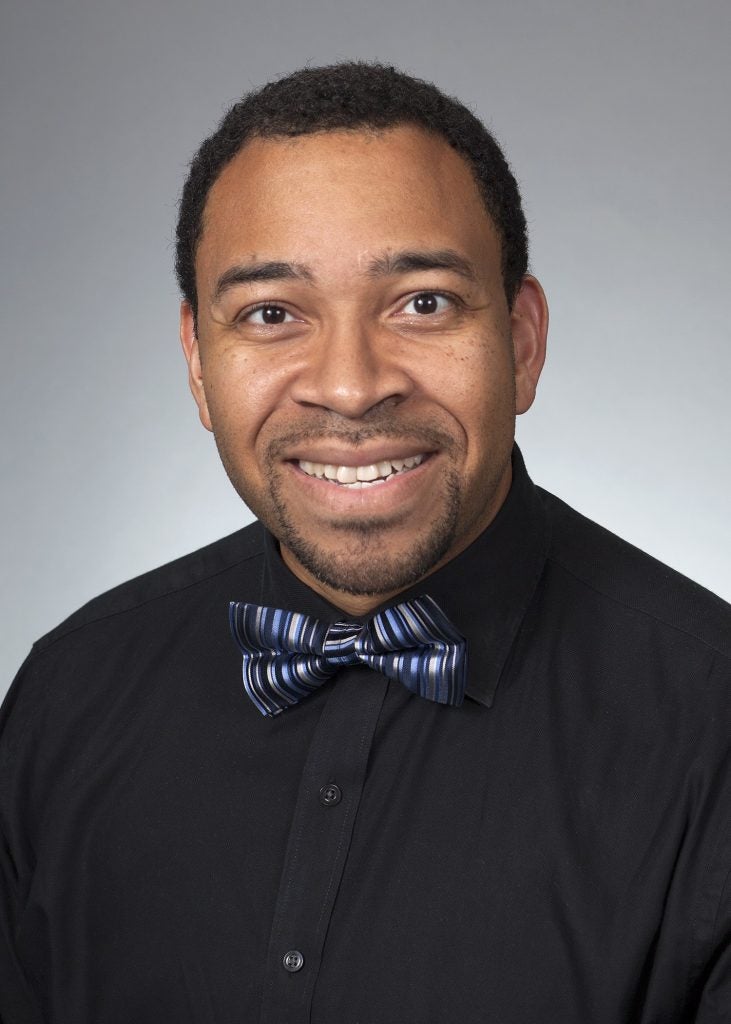Brody associate dean named to national steering committee
The associate dean for diversity and inclusion at ECU’s Brody School of Medicine has been selected to serve on the steering committee for the Association of American Medical Colleges’ Group on Diversity and Inclusion. In this role, Dr. Kendall Campbell will act as a liaison between the national committee and all medical schools in the southern region of the United States.
“It [my selection] puts Brody on the map, on the national landscape if you will, for diversity and inclusion issues,” Campbell said. “It allows me to bring issues that may be particular to Brody, to a national light. It really stresses Brody’s commitment to diversity and inclusion because I was nominated by folks here for this position. So it’s not something I just decided to do myself; there were people here that recognized that it would be good for me to serve on this committee.”
Brody is dedicated to increasing access to a medical education for minority and underserved students as part of its legislatively mandated threefold mission. Campbell’s office oversees eight groups within Brody that focus on diversity, such as the Sexual and Gender Diversity committee, the Brody Women Faculty committee and the Interprofessional Diversity Group. The Office of Diversity Affairs has also developed workshops that focus on the various aspects of diversity and inclusion to promote retention of minority faculty and a more inclusive environment at Brody.
According to a recent AAMC report, Brody ranks better than 90 percent of the nation’s medical schools when it comes to the percentage of its graduates who are African American. Nearly one-third of Brody’s newest class is non-Caucasian.
Campbell said that while Brody does better than many medical schools when it comes to maintaining a culture of diversity, there is still work to be done.
“My goal for us is to be at parity with the state,” he said. “Because we only accept North Carolina residents, I look at the state census population as to what should be our representation. So if there’s a certain percentage of racial minorities in the state, then that’s what we want to see reflected in our medical school classes.”
Campbell earned his medical degree from the University of Florida College of Medicine and completed a residency in family medicine at the Tallahassee Memorial Healthcare Family Practice Residency Program. Before coming to Brody in 2016, he was on faculty at Florida State University College of Medicine, where he was the co-founder and co-director of the Center for Underrepresented Minorities in Academic Medicine.
In addition to his AAMC appointment, Campbell was recently named a member of the Roundtable on the Promotion of Health Equity and the Elimination of Health Disparities for the National Academy of Medicine. He is also the director of the Research Group for Underrepresented Minorities in Academic Medicine at Brody.
“Dr. Campbell is a nationally recognized expert in the field of diversity and inclusion in medical school communities,” said Brody’s interim dean, Dr. Nicholas Benson. “His appointment to this important national leadership body demonstrates that the Association of American Medical Colleges recognizes that Kendall’s participation will bring an important voice to their discussions that have positive impact for medical education and research across the country.”
The AAMC Group on Diversity and Inclusion is a national forum aimed at advancing diversity in the medical academic setting, keeping institutions informed about the benefits of diversity and highlighting the importance of addressing issues pertaining to historically underrepresented populations. Ultimately, the goal of the committee is to provide better care to the underserved through a more diverse medical workforce.
“I think the most encouraging trend is that [diversity] is on people’s minds,” said Campbell. “And not only that it’s on their minds, but people are moving from a place of tolerating diversity to recognizing diversity benefit.”
-by Angela Todd, University Communication
